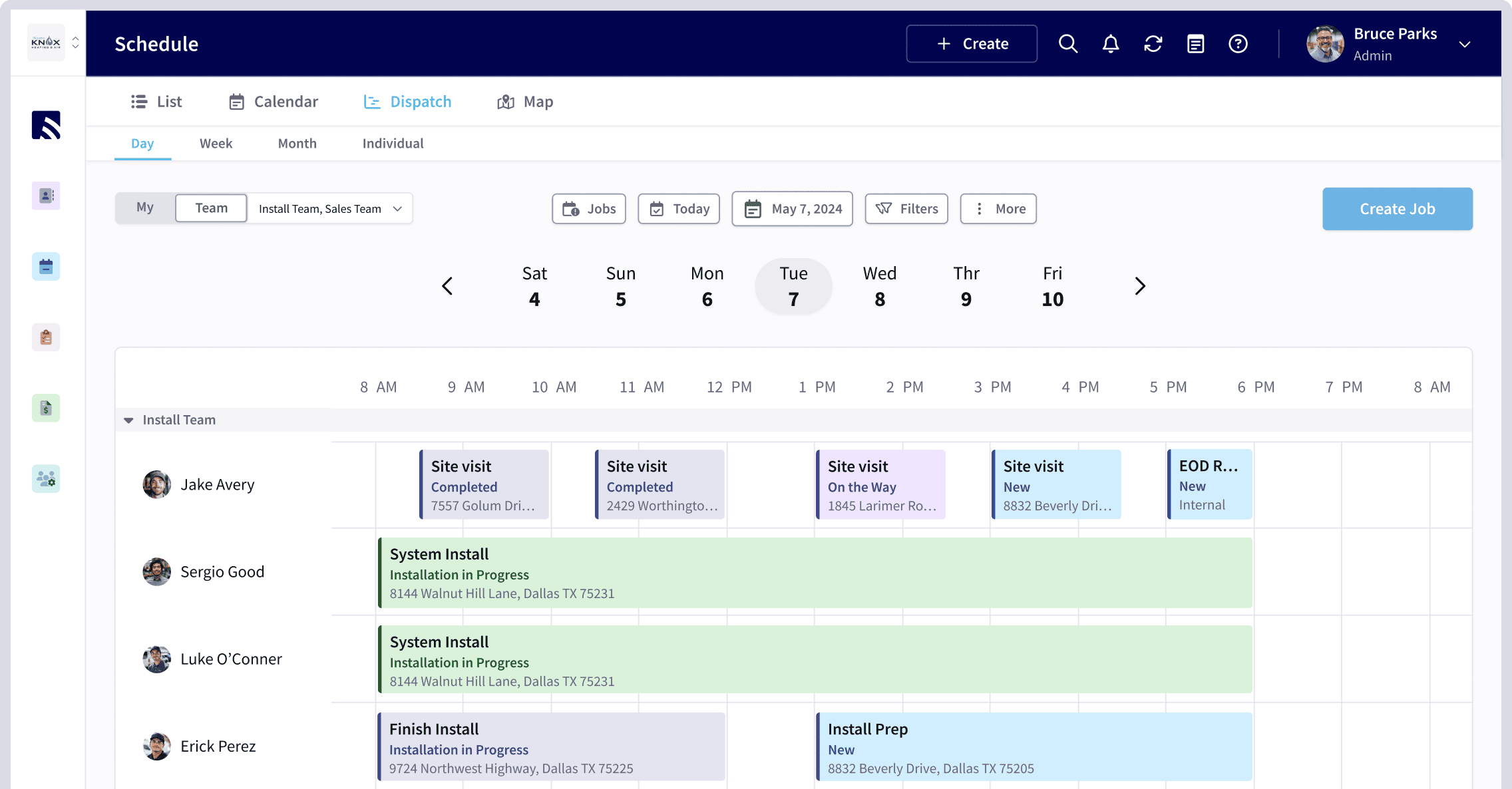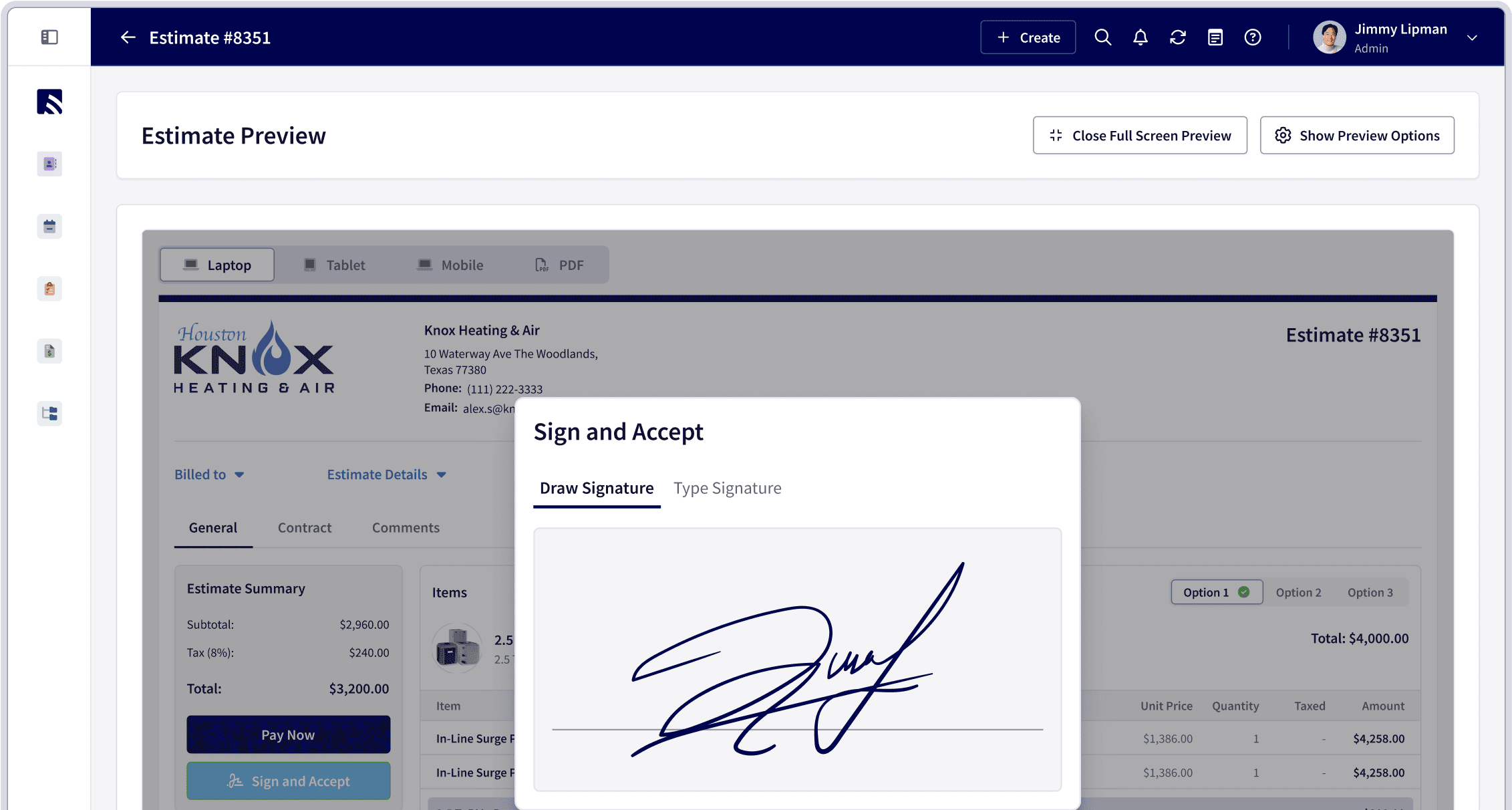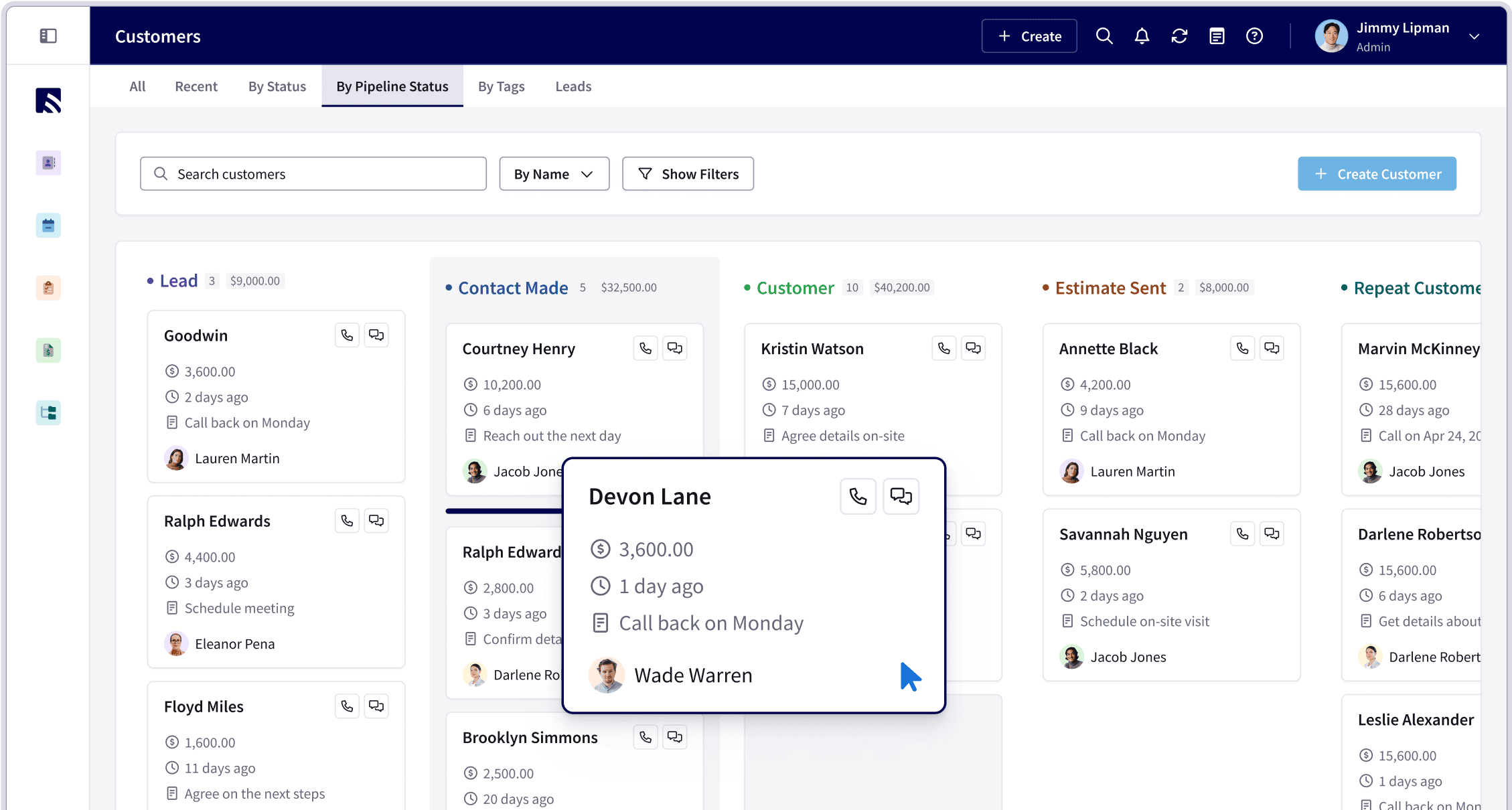Field Service Management Software for those who need more.
Field Service Management Software for those who need more.
Powerful FSM software backed by the best support in the industry.
4.8 rating

Established in 2015 and trusted by thousands of field service companies.
All-in-one software to run your field service business
FieldPulse is the ultimate FSM software solution for field service teams. With features and automation that create synergy across office and field teams, FieldPulse customers see tangible growth and performance improvements fast. Explore our features and see how your team can gain a competitive edge.

Adapt FieldPulse to your processes
FieldPulse is easy to customize to fit your business.

Fast and easy to set-up
Onboard and go live in a matter of weeks, not months.
Explore the Platform
WHY CHOOSE FIELDPULSE?
Built for the Field. Backed by Experience.
Dive into videos that show how FieldPulse helps real businesses customize operations, solve everyday challenges, and grow with confidence.
Watch More


"You call an air conditioning technician when you have issues with your air conditioning, you call a plumber when you have issues with your plumbing, you call an electrician when you're having issues with your electrical, you call FieldPulse when you have challenges managing your business."

How FieldPulse Creates Growth
77%
of FieldPulse users saw increased sales
78%
average growth year over year
84%
of FieldPulse users saw increased productivity
89%
average increase in revenue
“Customer service is unmatched”
Talk to a FieldPulse team member via phone, email or live chat
Get answers in minutes, not days or weeks
“Day to day scheduling of 15-20 crews and keeping all of that time tracked to individual projects is a huge benefit to using the platform. Easy communication of job and customer details to the tech in the field.”

Colby B
Operations Manager | Stewart Electrical Contracting, Inc.

FIELD SERVICE MANAGEMENT RESOURCES & TOOLS
Take your operations to the next level.
Dive into our latest blogs, white papers, and playbooks—all crafted to help your team win in the field and in the office.

COMPANY NEWS
FieldPulse Announces $50 Million Series C
READ →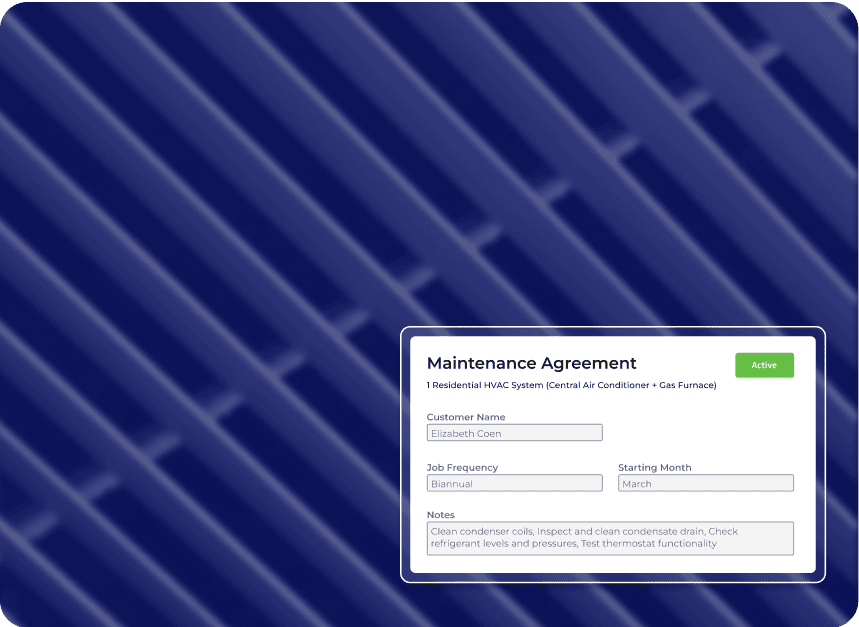
CASE STUDY
From Side Hustle to Scalable Business: Bayou South Mechanical’s FieldPulse Story
READ →
BUSINESS OPERATIONS
Dispatching Software for Small Business
READ →
WEBINAR
The Power of SOPs and Photos: Top Tips for Field Team Productivity
WATCH →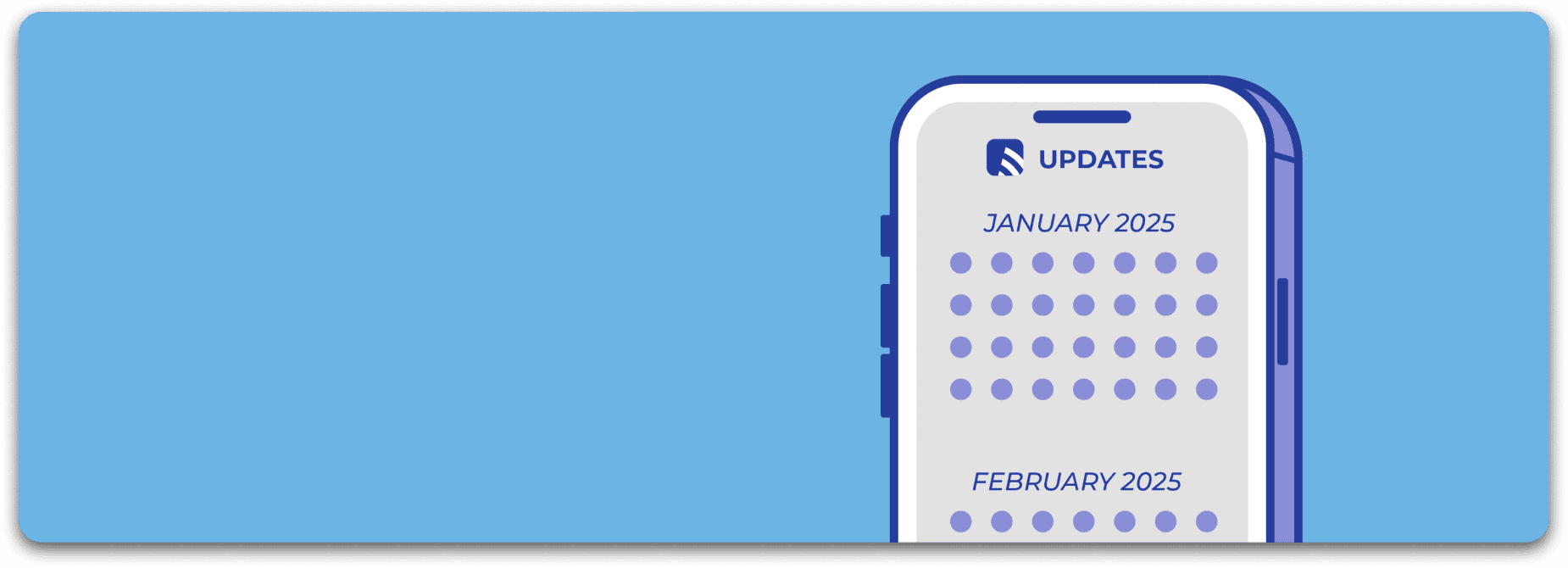
PRODUCT UPDATES
FieldPulse Spring 2025 Product Updates: Elevate Your Efficiency!
LEARN →
BUILDING A BUSINESS
5 Ways to Grow Your Electrical Business
READ →
EBOOK
Boost Your Business Reputation with a Better Customer Experience
LEARN →How much will you grow?
See how FieldPulse can take your business further.










